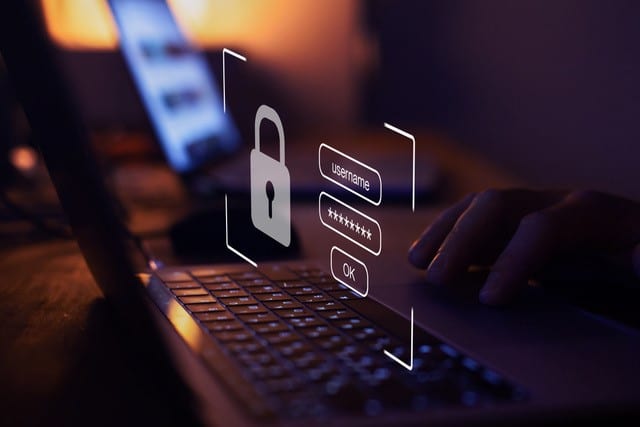Fraud has become increasingly more common in today’s digital age. Fraudsters have more ways to target individuals than ever before, such as email, text and social media. As a financial institution, our responsibility is to educate our members about fraud and how to prevent it. We’ve compiled a list of our top fraud prevention tips along with details on how Centris Federal Credit Union will stay in contact with you should fraud be suspected.
How to Protect Yourself from Fraud
Keep Your Personal Information Confidential
Never give out information over the phone, email or online unless you know the source is legitimate. Personal information includes your usernames, passwords, Social Security Numbers and account numbers. Fraud.org states that you should “be especially suspicious if someone claiming to be from a company with whom you have an account asks for information that the business already has on file.” Centris will never contact you asking for your account or personal information over the phone.
Protect Your Accounts
Fraudsters and hackers are continuously coming up with ways to hack into accounts, one of which is using malicious programs. These programs are designed to try and crack passwords. So while keeping your account passwords confidential is a must, changing your passwords regularly and making them hard to guess is even better. Check out this helpful guide from Norton focused on creating a strong password.
Monitor Your Accounts
Monitoring your bank accounts daily will allow you to catch any suspicious activity quickly. To help monitor your accounts, you can set up alerts though Centris online banking. Monitoring your credit reports consistently will also help quickly identify any unauthorized activity. You can check your credit report from the three major credit bureaus free of charge once a year at annualcreditreport.com.
Stay Informed About Current Scams
Fraudsters will evolve so we must adjust and adapt with them. Fraud awareness is a great way to be prepared for new banking, credit card, and personal data scams that might come your way. Visit Common Scams and Frauds on the USA.gov website to stay aware of the latest scams and frauds.
Know the Red Flags
Recognizing fraud is crucial in stopping it from happening. Here are a few tips for how to recognize fraud:
Spelling
Look carefully at the spelling of words in documents, emails or texts from institutions claiming to have your accounts. There are often misspelled words and typos in fraudulent content. Also, look at the logos. Are they faded or hard to read? If so, it could be fraudulent material.
Urgency
Urgency is the name of the game for fraudsters. The more pressure they put on you, the more likely you are to comply with what they’re asking. When everything is moving too quickly, remember to take a breath and slow down. We encourage our members to ask themselves or even a trusted loved one, “Does this make sense?”
Threats
Just like time pressure, threats are another way fraudsters can send you into panic mode. These threats can come in various ways, such as threatening to report you to the government, to sue you or aiming threats toward your loved ones. Again, take a deep breath and ask yourself, “Does this make sense?”
It’s Too Good to Be True
If the person you are speaking with offers you something that seems too good to be true, it probably is. Fraudulent offers such as an exceptionally low interest rate, lottery winnings or a prize for completing a survey are just a few examples.
It is also important to note that when speaking with someone over the phone, it is okay to hang up and call your financial institution directly to make sure you are speaking with someone legitimate.
For additional red flags to look out for, take a look at VISA®’s article on the Top 5 Ways Fraudsters Try to Steal Your Information.
How Centris Will Contact You
Unfortunately, some fraudsters pretend to be from your trusted financial institution. So how can you tell if someone is legitimate or committing fraud? Knowing how your financial institution will contact you is one way. Here’s how our team at Centris contacts members:
Phone
If our Member Protection Team feels a member is at risk of being or is a victim of fraud, they will reach out via a phone call. They will identify themselves and educate the member on what they see that is cause for concern. Our Member Protection Team will never ask for your personal information, such as account numbers, PINs or verification codes when reaching out to you.
It is important to note that our Member Protection Team may reach out to you via email only after they’ve talked to you verbally. If you have received an email from what seems like Centris regarding account security and have not verbally communicated with our Member Protection Team, you can easily verify the legitimacy of that email by giving us a call at 402-758-6500 during our business hours (8:00 a.m. – 5:00 p.m. CST).
Text
If you’ve enrolled in alerts through Centris Mobile Banking or the Centris Debit Card Companion App, you may receive text alerts. Through these alerts, we will never ask you to click a link or provide personal information including credentials.
There could be an instance where a text from Centris includes a link. For example, a late payment notice. While texting can be a useful communication channel, your privacy and security remain our top priorities. If at any time you question the legitimacy of a text that comes from Centris, we encourage you to call us directly to confirm the text message details. Remember, it’s best to go to a familiar website if you’re unsure whether or not the link you’ve received is legitimate.
Secure Access Code
We may also send you a Secure Access Code through text, email or phone call to authenticate your identity while logging in from an unregistered browser. You should never provide this code to anyone.
Through VISA® or ELAN
If you have a debit or credit card with Centris FCU, the VISA® fraud protection team or ELAN team might reach out about potential fraud. Here’s how:
- VISA® Fraud Protection: If the VISA® Fraud Protection Team detects fraudulent activity with your debit card, they will reach out via email, phone call and text. Their emails and texts will never include links and will not require your account information, such as PINs or card numbers.
- ELAN: If there is potentially fraudulent activity with your credit card, ELAN will call the card holder. They will not ask you for any card information regarding your card’s CVV (three-digit code on the back of the card) or issue/expiration date.
We hope that this information helps prepare you for potential fraud attempts. Keep those red flags in mind and when in doubt, ask yourself: “Does this make sense?” If you have any questions or believe you’ve been a victim of fraud, visit our Fraud Protection page.
Stay connected with Centris on Facebook, Twitter, Instagram and LinkedIn and listen to our latest podcast where we chat with one of Centris’ Fraud Analysts!





